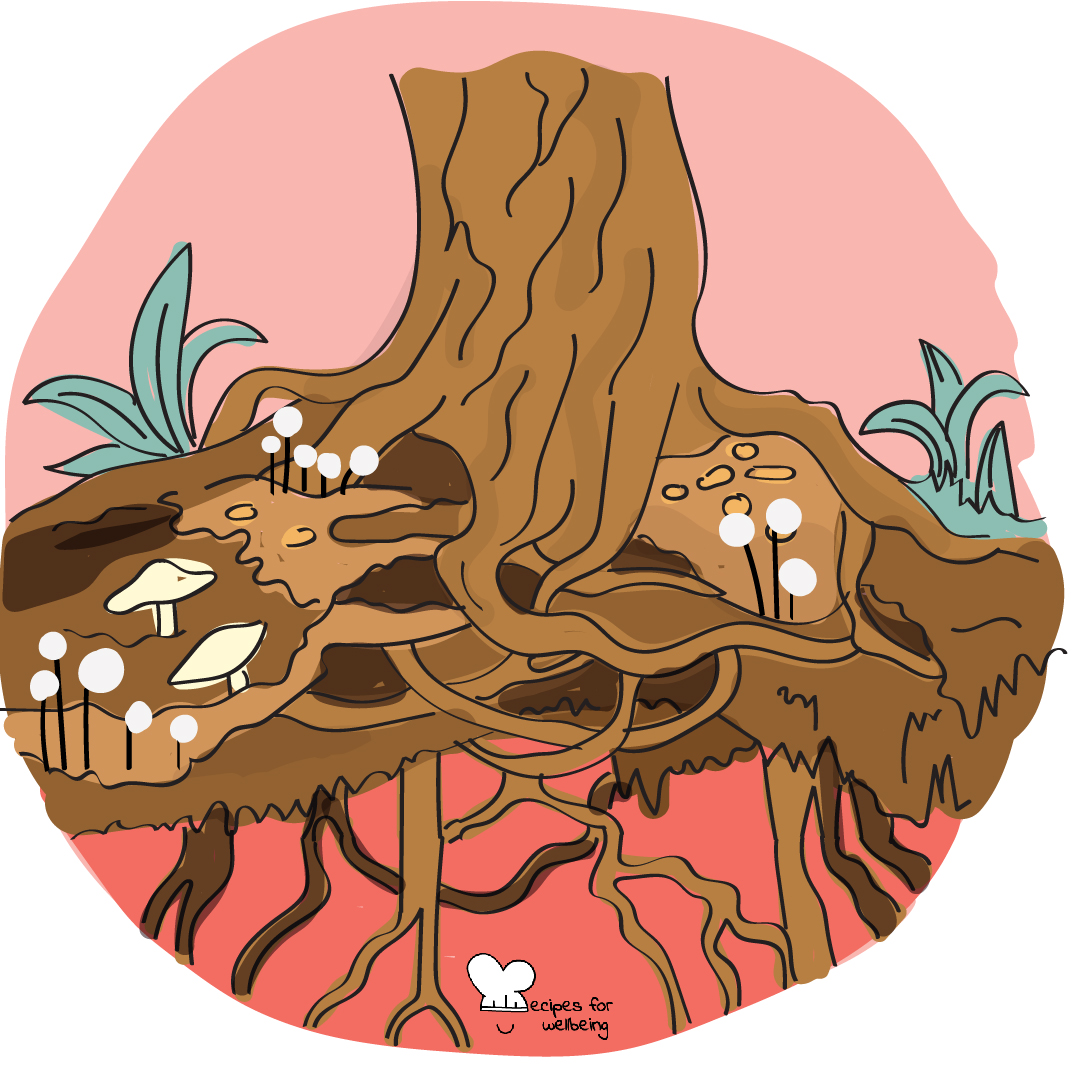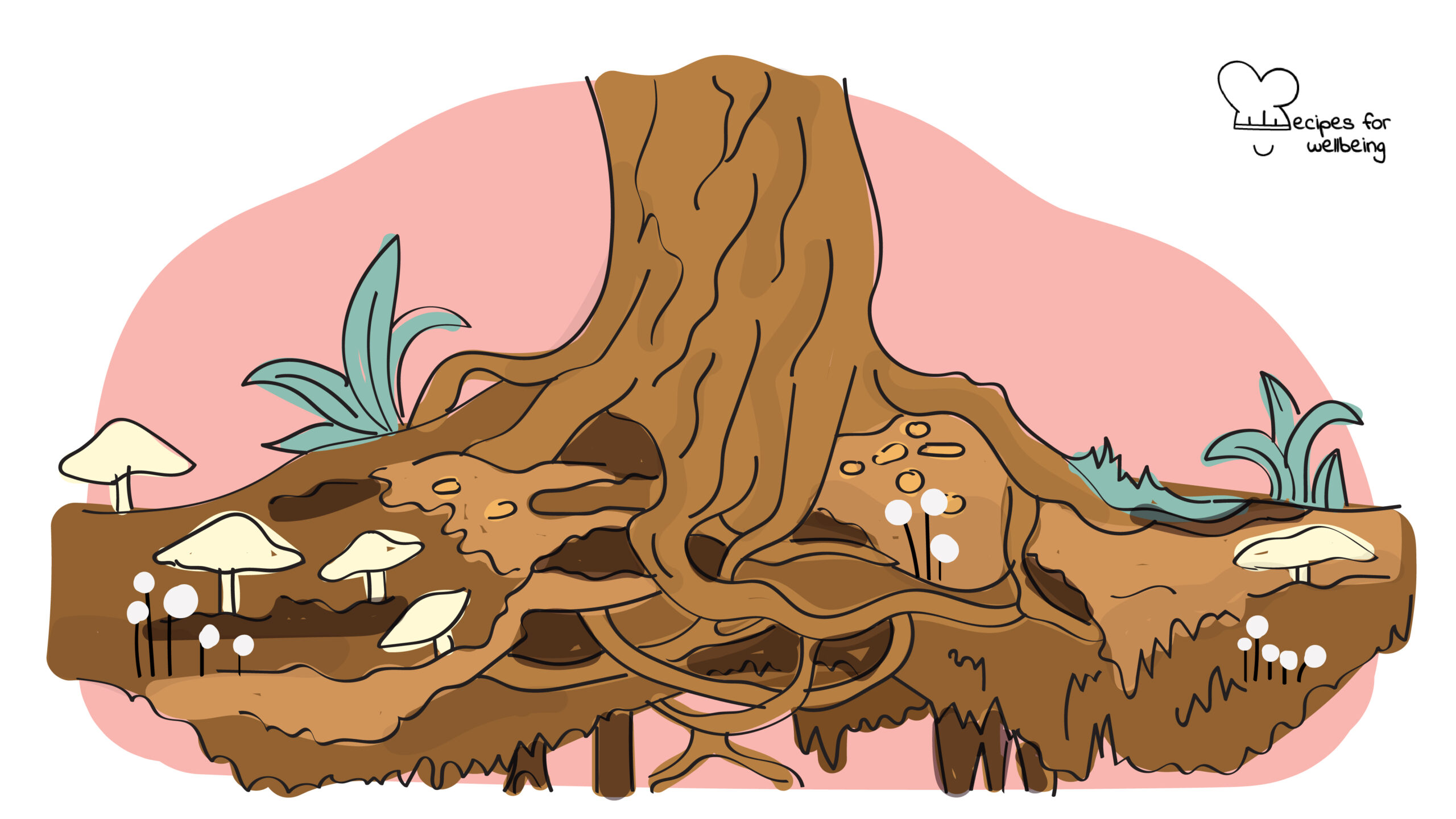
Nurture your compassion roots
Compassion is not a virtue – it’s a commitment. It’s not something we have or don’t have – it’s something we choose to practice. ―Brené Brown
👥 Serves: 1 person
🎚 Difficulty: Easy
⏳ Total time: 11-30 minutes
🥣 Ingredients: A quiet place with no distractions, 1 pen, 1 sheet of paper, curiosity
🤓 Wholebeing Domains: Awareness, Community, Meaning, Positive Emotion, Radical Care
💪 Wholebeing Skills: Caring, Compassion, Emotional intelligence, Non-attachment, Perspective, Reflection, Reframing, Relating to Others, Service

Nurture your compassion roots
📝 Description
A reflective journaling practice to root yourself in compassion.
This reflective journaling practice invites you to consider three dimensions of your compassion roots to ground you and support you to thrive. Compassion involves noticing another person’s needs, empathising with them, and taking action to enhance their wellbeing. As a purpose-driven changemaker, nurturing and balancing the source of compassion that has set you on the course of your changemaking journey can be a vital ingredient to sustain you along the way. If you’re curious to find out more about the difference between compassion and empathy, check out our blog post “The power of empathy and how to avoid empathy burnout” published on tbd* on 23 September 2020.
This recipe has been kindly donated by Signe Jung Sorensen and it builds on insights and reflections from interviews with 17 purpose-driven professionals across the world including public servants, social entrepreneurs, not-for-profit founders and managers, as well as academics. Signe is a consultant and coach, hosting community compassion calls on a bi-monthly basis and developing a network of compassion-curious professionals.
👣 Steps
Step 1 – Compassion for the world (8’)
Compassion can support your big “why” – helping you to centre yourself on your impact journey. This is a natural place to start for most changemakers because it adds meaning and energy to your mission. It unlocks a larger vision for the challenges you are looking to solve in the world and it fills you with purpose. Grab your notebook and reflect on the following journaling prompts:
- Why is this value important to you and what does it bring you?
- What life experiences make you attached to this value?
- How does this value show up in the positive change you wish to contribute to?
Step 2 – Compassion for others (8’)
If compassion catalyses your “why”, it can also inform your “how” in creating impact. How do you bring compassion into the process of making a positive change? How do you align compassion as a value driving your mission with compassion as a value lived in how you carry out your mission? Continue your journaling practice by reflecting on the following prompts:
- Where do you practise compassion in your daily interactions with team members, beneficiaries, stakeholders, etc?
- Which situations do you find it more difficult to practise compassion in?
- Where could you easily practise more compassion?
Step 3 – Compassion for yourself (8’)
Self-compassion is an underestimated resource for supporting personal wellbeing in your impact journey. Offering yourself the compassion you perceive for the world and for others appears to be the simplest thing to do, yet often it turns out to be the hardest. This step is about nurturing, owning, and implementing the mindset that it is in fact self-less to focus on self-care, self-worth, and self-awareness as this is the fuel that will sustain you as you help others and the planet. Continue your journaling practice by answering the following prompts:
- What is your greatest motivation for practising self-compassion?
- What is currently preventing you from doing so?
- What does self-compassion look like for you?
Step 4 – Taking stock (8’)
At this point, take a moment to reflect on where you find yourself on the three dimensions of compassion. Draw a triangle with a circle inside and write “me”, “others”, and “world” on the three tips of the triangle. Now, identify where you would place yourself if you considered your compassion attention at present. Which compassion root might need extra attention? If you are at the extreme tip of one of these dimensions, what might you need to attend to, to bring it into balance? Whilst it may never be possible for you to be perfectly balanced between the three, it is important to be aware of where you stand and to be conscious about which compassion root you want to water to ground you in your changemaking journey.

